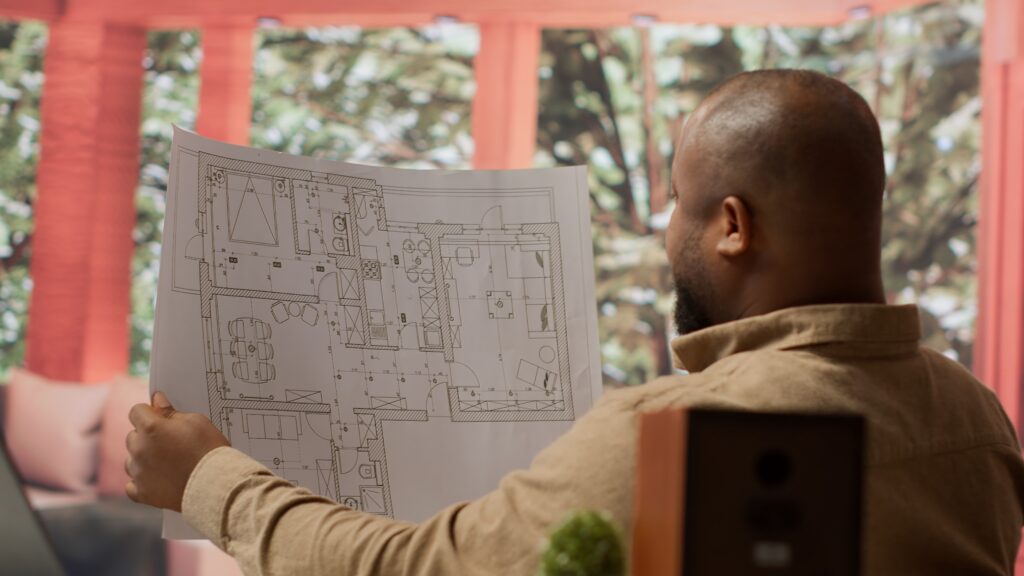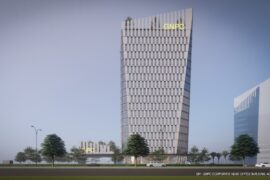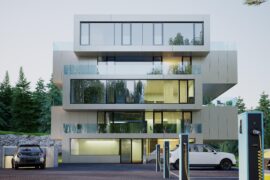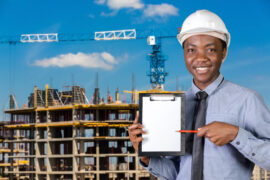Key Takeaways
- Explore local architectural firms in Ghana for innovative building designs and assess their portfolios for style and capability.
- Utilize online resources that offer ready-made building plans, filtering by size, style, and functionality for convenience.
- Consult with professionals for customized building plans tailored to specific needs and site characteristics.
- Establish an overall budget that includes materials and labor costs when selecting building plans to ensure financial clarity.
- Consider future adaptability in designs to accommodate potential changes in family size or lifestyle preferences.
Overview of Architectural Styles in Ghana
When exploring architectural styles in Ghana, you’ll find a rich tapestry that reflects the country’s diverse cultural heritage and historical influences. The architectural landscape showcases a blend of indigenous designs and colonial influences, particularly evident in urban areas. You’ll notice how British colonial architecture introduced features like verandas and large windows, adapting to the local climate while merging with traditional elements. Ghana’s regional variations further enrich this architectural narrative. In coastal regions, for instance, you’ll see brightly painted buildings with ornate wooden carvings, while northern areas favor mud-brick constructions that provide insulation against the heat. Each region tells a unique story through its structures, influenced by local materials, cultural practices, and environmental factors. This fusion of styles not only highlights Ghana’s history but also its evolving identity, making it a fascinating study for anyone interested in architecture.
Building Plan Designs for Modern Ghanaian Homes and Projects
Crafting modern Ghanaian homes requires a fusion of tradition and innovation, but what secrets lie in achieving the perfect balance? Discover more inside.
Traditional Ghanaian House Designs
Traditional Ghanaian house designs showcase a rich tapestry of architectural styles that reflect the diverse cultures within the country. You’ll find that these structures not only serve practical purposes but also embody deep cultural significance, connecting communities through shared heritage. Understanding these designs allows you to appreciate the intricate relationships between architecture and identity in Ghana.Architectural Styles Overview
As you explore the architectural styles of Ghana, you’ll discover a rich tapestry of designs that reflect the country’s diverse cultural heritage. Traditional Ghanaian houses often showcase vernacular architecture, characterized by local materials like mud and thatch. These structures are adapted to the climate, ensuring natural ventilation and thermal comfort. Colonial influences are evident in urban settings, where you might find a blend of European designs with indigenous elements. For instance, many towns feature houses with wide verandas and intricate woodwork, merging functionality with aesthetics. This fusion creates a unique architectural identity, bridging the past and present. By appreciating these styles, you’ll gain insight into Ghana’s history and the resilience of its people, showcasing their ability to adapt and innovate.Cultural Significance Explained
While exploring the cultural significance of traditional Ghanaian house designs, you’ll find that these structures are not merely shelters but also essential expressions of identity and community values. Their architectural heritage reflects a blend of history, craftsmanship, and social cohesion. Here are three key aspects that highlight their cultural identity:- Materials: Locally sourced materials like mud, thatch, and wood are utilized, emphasizing sustainability and connection to the land.
- Design: Often circular or rectangular, these designs foster communal interaction and symbolize unity within families.
- Symbolism: Decorative elements often carry meanings related to ancestry and spirituality, reinforcing the community’s cultural ties.
Modern and Contemporary Building Plans
In exploring modern and contemporary building plans, you’ll encounter key features that prioritize open spaces and natural light. Popular styles like minimalism and industrial aesthetics are gaining traction, reflecting a shift in design preferences. Additionally, sustainable building practices are becoming essential, ensuring that your projects not only look good but also contribute positively to the environment.Key Features of Modern Designs
Modern designs in building plans showcase a harmonious blend of functionality and aesthetic appeal, ensuring that spaces not only serve their intended purpose but also inspire those who inhabit them. Key features of modern designs include:- Minimalist Aesthetics: Clean lines and simple forms create a sense of order and tranquility, allowing the beauty of the materials to shine without unnecessary distractions.
- Open Spaces: Expansive layouts promote natural light and airflow, enhancing the overall livability of the home while fostering a sense of connection among living areas.
- Sustainable Elements: Incorporating eco-friendly materials and energy-efficient technologies not only reduces environmental impact but also contributes to long-term cost savings.
Popular Contemporary Styles
Contemporary building plans embrace a variety of styles that reflect current trends and preferences, each offering unique characteristics that cater to diverse tastes. You’ll find that popular contemporary styles highlight clean lines, open spaces, and large windows, creating a seamless connection between indoor and outdoor environments. These designs often draw on urban influences, integrating materials like steel, glass, and concrete to emphasize modernity. Additionally, contemporary aesthetics prioritize functionality, ensuring spaces are not only visually appealing but also practical for everyday living. From minimalist designs to bold architectural statements, these plans allow you to express individuality while adhering to current architectural standards. In Ghana, exploring these options can lead to inspiring and innovative living spaces that resonate with modern lifestyles.
Building Materials Guide: Types, Prices, and What to Use
Knowing the right building materials can save you money and enhance your project; discover the best options to elevate your construction game.
Sustainable Building Practices
While embracing modern aesthetics, sustainable building practices focus on minimizing environmental impact and enhancing energy efficiency. You can achieve this by incorporating three key strategies:- Utilize green materials: Opt for recycled, locally sourced, and non-toxic materials that reduce your carbon footprint while promoting healthier living spaces.
- Implement energy-efficient systems: Invest in renewable energy solutions like solar panels and optimize insulation to maintain comfortable temperatures without excessive energy consumption.
- Maximize natural light: Design your space to harness daylight, reducing reliance on artificial lighting and enhancing your home’s ambiance.
Eco-Friendly and Sustainable Designs
As you explore building plans in Ghana, you’ll discover that eco-friendly and sustainable designs are becoming essential in promoting environmental stewardship. Embracing green architecture not only enhances the aesthetic appeal of your home but also boosts energy efficiency, reducing your utility bills over time. Here’s a quick overview of some eco-friendly features you might consider: | Feature | Benefits | Considerations | |———————-|———————————|———————————–| | Solar Panels | Renewable energy source | Initial installation cost | | Rainwater Harvesting | Water conservation | Requires proper system design | | Energy-efficient Windows | Improved insulation | Higher upfront costs | | Sustainable Materials | Reduced environmental impact | Availability may vary |Luxury Home Designs in Ghana
When you envision luxury home designs in Ghana, think of a harmonious blend of modern aesthetics and cultural influences that create a unique living experience. These homes often showcase exceptional craftsmanship and attention to detail, making them stand out in any neighborhood. Here are three key features you’ll find in luxury homes:Envision luxury homes in Ghana, where modern aesthetics meet cultural influences for an unparalleled living experience.
- Luxury Amenities: Expect state-of-the-art technology, private pools, and expansive outdoor spaces designed for relaxation and entertainment.
- High-End Finishes: Quality materials like marble flooring, custom cabinetry, and designer fixtures elevate the overall ambiance, providing an opulent feel.
- Spacious Layouts: Open floor plans with large windows invite natural light, enhancing the connection between indoor and outdoor spaces.
Where to Find Building Plans and Architects
Finding the right building plans and architects in Ghana is key to bringing your luxury home vision to life. Start by exploring local architectural firms known for their innovative designs and expertise in residential projects. Many of these firms maintain a portfolio of previous works, giving you insight into their style and capabilities. Additionally, you can access various building plan resources online, where you’ll find ready-made designs tailored for Ghana’s unique environment. Websites dedicated to architectural services often feature user-friendly interfaces, allowing you to filter plans based on size, style, and functionality. Don’t hesitate to consult professionals who can customize plans to meet your specific needs. Engaging with local architects also provides you with valuable information about building regulations and materials suited for your project. By utilizing these resources effectively, you’ll be well-equipped to select the perfect plans and professionals for your dream home.
Building Design Trends Shaping Architecture in Ghana
Harnessing sustainability and local craftsmanship, building design trends in Ghana are transforming architecture—discover the innovative future that awaits.
Tips for Choosing the Right Building Plan
How do you guarantee that the building plan you choose aligns with your lifestyle and budget? Start by focusing on key elements that matter most to you. Here are three essential tips for making the right choice:- Budget Considerations: Determine your overall budget and stick to it. Include costs for materials, labor, and any unforeseen expenses. This will help you filter out unrealistic plans.
- Site Analysis: Assess your plot’s characteristics, including size, topography, and orientation. A well-suited plan will maximize your land’s potential while ensuring structural integrity.
- Future Needs: Think long-term. Consider how your family might grow or change over the years. Opt for a design that offers flexibility, allowing you to adapt spaces without major renovations.
Frequently Asked Questions
What Are the Costs Associated With Building Plans in Ghana?
When evaluating costs associated with building plans, you’ll need a detailed cost breakdown, including materials, labor, and permits. Don’t forget to explore various financing options to manage expenses effectively and guarantee your project stays on budget.How Long Does It Take to Finalize a Building Plan?
Finalizing a building plan typically takes several weeks to months. Timeline factors like design complexity and the approval process play vital roles. You’ll need to take into account local regulations and any required revisions during this time.Are Building Plans Adaptable for Different Terrains in Ghana?
Yes, building plans are adaptable for various terrains in Ghana. By conducting terrain analysis, you can achieve design flexibility, ensuring your structure suits the unique characteristics of the land while maintaining stability and functionality.What Permits Are Needed for Construction in Ghana?
You’ll need several permits for construction in Ghana, including building permits, environmental permits, and approvals that comply with local construction regulations and building codes. Always check with local authorities to guarantee you meet all requirements.Can I Modify Existing Building Plans to Fit My Needs?
Yes, you can modify existing building plans to fit your needs. Many designs offer customization options, allowing for design flexibility. Consult with an architect to guarantee your adjustments meet structural integrity and local regulations.Conclusion
To sum up, whether you’re drawn to traditional designs or modern aesthetics, Ghana offers a wealth of building plans to suit your needs. Exploring eco-friendly options can enhance sustainability, while luxury designs provide a touch of opulence. By considering your preferences and lifestyle, you can select the perfect architectural style. Don’t forget to consult with architects and design professionals who can guide you through the process, ensuring your dream home becomes a reality in this vibrant country.Discover more from Ghana Scoop
Subscribe to get the latest posts sent to your email.





